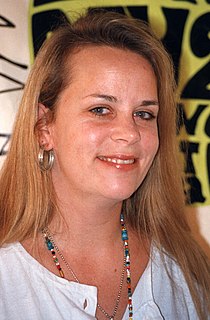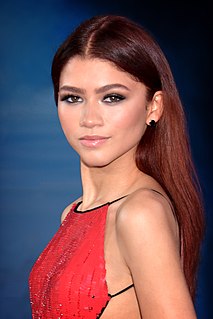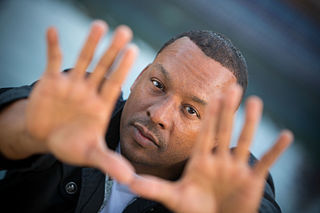A Quote by Mary Chapin Carpenter
I certainly felt the desire to reach as many people as I could; I wanted to make the most of this opportunity, sure. But I wouldn't call it pressure the way we're thinking of it now.
Related Quotes
We live and breathe words. .... It was books that made me feel that perhaps I was not completely alone. They could be honest with me, and I with them. Reading your words, what you wrote, how you were lonely sometimes and afraid, but always brave; the way you saw the world, its colors and textures and sounds, I felt-I felt the way you thought, hoped, felt, dreamt. I felt I was dreaming and thinking and feeling with you. I dreamed what you dreamed, wanted what you wanted-and then I realized that truly I just wanted you
Sizing was also important to me; I wanted to make sure that nobody felt alienated or felt like they weren't thought about in the process of this brand. I wanted to make sure that everyone felt included, which brings us to the gender neutral pieces - the idea of wearing what you want and whatever makes you feel comfortable and confident. I think that's the overall feeling of the Daya collection.
I'm sure as an infant, no matter what I looked like, I felt like the most loved kid getting those massages. So I really think that was a big part of my growing and my brain developing. Most of all however, I think it was the love that was given to me unconditionally and I felt that my whole life. It certainly wasn't that my parents always liked what I was doing, even my becoming a doctor, my father preferred I went into business so he could help me, but I wanted to be a doctor.
Longing is the fullest sense of desire; it's the most deeply felt kind of desire. I think the most interesting artwork comes out of some sense of longing. It could be called dissatisfaction; it could be called distance. There are many kinds of wanting to get closer to something else, whether that is an idea, a body, a place. Longing is also one of the conditions people approach reading, visual art, or music with - it's to satisfy that sense of longing. It's part of my job, on some level, to grapple with that notion.
It's very interesting to read why Cornelius Cardew became disenchanted with academic avant-garde music. He wanted to reach as many people as possible and change their consciousness. He wanted to reach the "working classes" in England. The kind of music he was making was very much from the academy, even though it had a lot in common with things like free jazz and improvisation, and he felt that it was the music of the elite, and that he wasn't really speaking to the people.
Vanity, or to call it by a gentler name, the desire of admiration and applause, is, perhaps, the most universal principle of humanactions.... Where that desire is wanting, we are apt to be indifferent, listless, indolent, and inert.... I will own to you, under the secrecy of confession, that my vanity has very often made me take great pains to make many a woman in love with me, if I could, for whose person I would not have given a pinch of snuff.
A lot of us players, if you were to ask them, feel like they have to play overseas. Why? 'Why not? Might as well do it while I can.' For a while, I felt that way - I've got to make the most money that I can. Now, do I feel like I could still play overseas? Absolutely. But I don't feel that pressure anymore.
Ideological pressure is much more crippling than commercial pressure. Crippling to your own freedom of thinking and creating, crippling the final results. If you wanted to succeed during the really hard-line totalitarian regime, you have to make so many compromises to please the censors that you don't recognize the original idea from the final result.
Opportunity could be defined in so many ways. There's one way of defining it, equality of opportunity, which is in fact the equality of capability, but the libertarians got there first and they have - like the Americans getting onto the moon, naming every crater after something like an astronaut - they have got there and named "opportunity" in a way that we cannot get ownership of now.
Being a black filmmaker, one of the things I wanted to do with the movie is make sure I told it from a different perspective. I wanted to take myself out of it as a black male. I wanted to look at this movie through the eyes of Tully, to understand what he was thinking, and feel what he was feeling as much as I could.
When I started Oracle, what I wanted to do was to create an environment where I would enjoy working. That was my primary goal. Sure, I wanted to make a living. I certainly never expected to become rich, certainly not this rich. I mean, rich does not even describe this. This is surreal. And it has nothing to do with money. I mean, you buy clothes with money, and cars. But I really wanted to work with people I enjoyed working with, who I admired and liked.




































